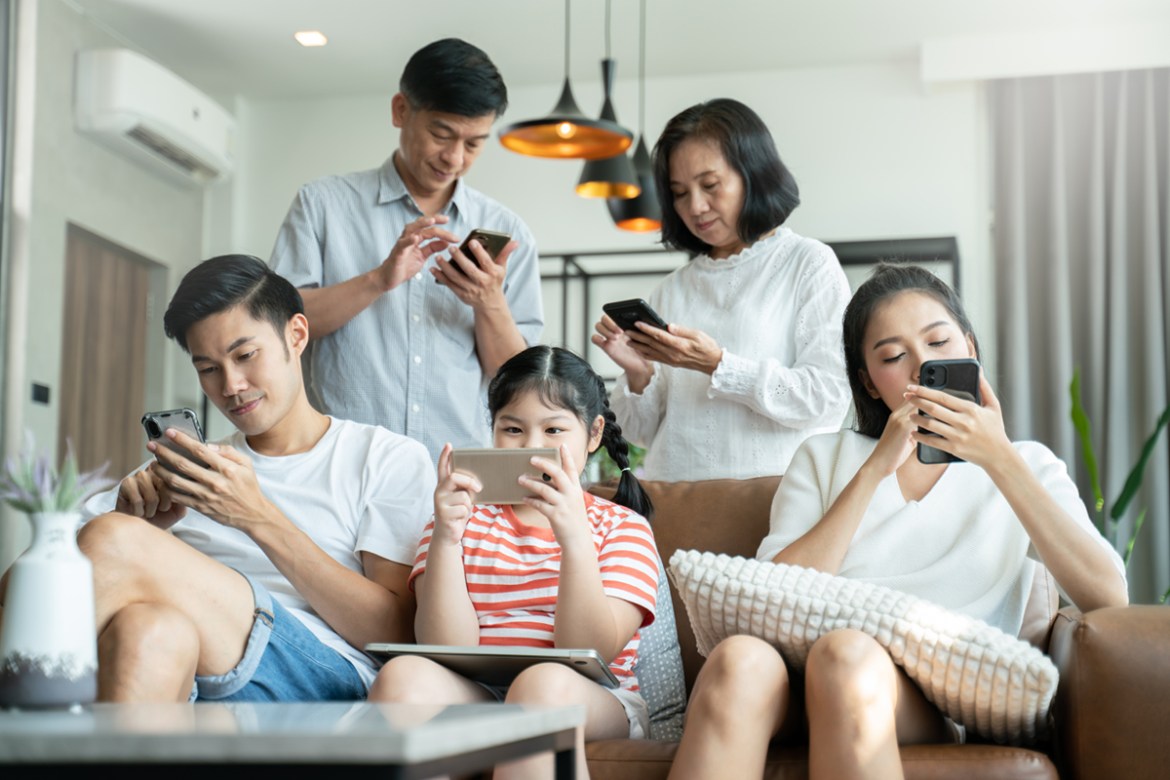Nowadays, we’re almost always in front of a screen—using our phones, tablets, and other devices. While it’s nice to look back on those days when our social interactions weren’t limited to online video meetings or calls, the pandemic has nevertheless forced us to change our lifestyles in a lot of ways, especially with how we interact with other people.
The sad truth is that we’re experiencing more of the real world now in the tiny screens of our phones and laptops. We go to work, attend school, buy groceries, hang out with friends, or celebrate birthdays online. Even our time off is spent in solitude watching movies or TV series, scrolling through social media, or playing mobile or video games on our gadgets.
Having to live our lives every day virtually may be convenient for a lot of us, but there are downsides to this too. Too much screen time can have drastic effects on our physical, emotional, and mental health.
That is why it is now more important than ever, in the context of a pandemic, to monitor how much screen time we spend in a day.
What is the ideal screen time for children and adults?
When it comes to kids, it is so much easier to determine the number of hours they should be spending in front of a device. The suggested screen time for children ages 2-5 years old is only one hour maximum per day.
Meanwhile, the suggested screen time for children ages 8-12 and teenagers may vary depending on other factors such as their online learning screen time. Parents may adjust the number of hours their child is exposed to a screen based on the recommendations of health experts that children and teens need at least 12 hours of sleep and one hour of physical activity a day.
On the other hand, the ideal screen time for adults is not so clearly defined and much trickier to figure out. In the age of rapid digital transformation, it is inevitable for adults to spend plenty of time in front of a screen. Many jobs tend to require them to work for long hours on their computers and laptops.
During the pandemic, screen time for adults has undoubtedly gone up. The widespread implementation of the work-from-home scheme among companies has caused the line between work hours and non-work hours to become increasingly blurred.
What are the negative effects of too much screen time?
It only takes one Google search to find out about the negative effects that too much screen time can have on both children and adults.
Kids who spend long hours on their gadgets run the risk of experiencing delays in growth and development. They often miss out on physical activities and social interactions which usually results in underdeveloped coping skills and antisocial behavior.
Research also suggests that these kids are more likely to experience depression and anxiety. Furthermore, the kind of content they consume may negatively influence their behavior and the way they approach their peers and family members.
Adults and children who are constantly on their phones and devices may also be prone to sleep problems, eye, neck, and back strain, frequent headaches, problems focusing on work, obesity, heart disease, and alienation from the people around them.
How do you manage your screen time better?
If you’re one of those people who struggle to be away from their gadgets for extended periods, then it’s time to come up with a game plan to curb this unhealthy habit.
1. Keep a schedule.
The very first step in managing your screen time is to create a daily schedule and stick to it. Having a schedule for your tasks and activities during the day will help you get a good picture of how you balance your time.
Since you have more control over your screen time outside of work hours, then you should focus on adjusting the time you spend on gadgets for your free time. You can set limits to your screen time by only allowing one or two hours for scrolling through your social media and streaming shows.
2. Switch off your notifications.
Notifications serve the purpose of alerting us of new messages and emails or updates on our social media accounts. But these can also quickly become an excuse to pick up our phones and spend hours using them.
The best way to resist the temptation to use your mobile device is to turn off all notifications from apps. By doing this, you can regulate the frequency by which you open your social media sites and other existing apps. You may also opt to turn off your phone altogether after work hours so that you’re not tempted to check it every few minutes or so.
3. Tune into the real world.
Excessive screen time can make you lose touch with reality. When your nose is always buried in your phone, you tend to miss out on the company of your loved ones and the greater pleasures of life.
It is very important to set clear rules for yourself when you’re with friends or family or in a public place. During family meals or important occasions, make it a point to pocket your phone and socialize with the people around you. You’ll find that you can build more meaningful connections and learn an interesting thing or two from interacting with others.
4. Focus your energy on physical activities.
Using our gadgets for too many hours during the day isn’t doing anything good for our physical health. Your screen time usually takes the place of physical activities like exercising, doing sports, and other activities that involve fitness and strengthening our bodies.
Make sure to allot an hour or two every day for exercise. It can be as simple as taking a walk around the village or as strenuous as working out. Either option is a good way to avoid falling into a sedentary lifestyle.
5. Avoid using your phone before going to bed.
Our screens emit a type of blue light, which, when exposed to in large doses, can be detrimental and can make it difficult for us to relax and fall asleep later in the evening. Because of this, we get very little rest and may even suffer from insomnia.
Practicing good sleeping habits and sticking to a bedtime routine is a must when you’re serious about managing your screen time. You need to remember that you shouldn’t be using any digital device an hour before you go to sleep.
Although it might take a while to get used to spending time away from your phones and gadgets, eventually you’ll get the hang of it. You’ll realize sooner or later that there’s a bigger world out there where you can live life to the fullest. #StaySafe #StaySmart




